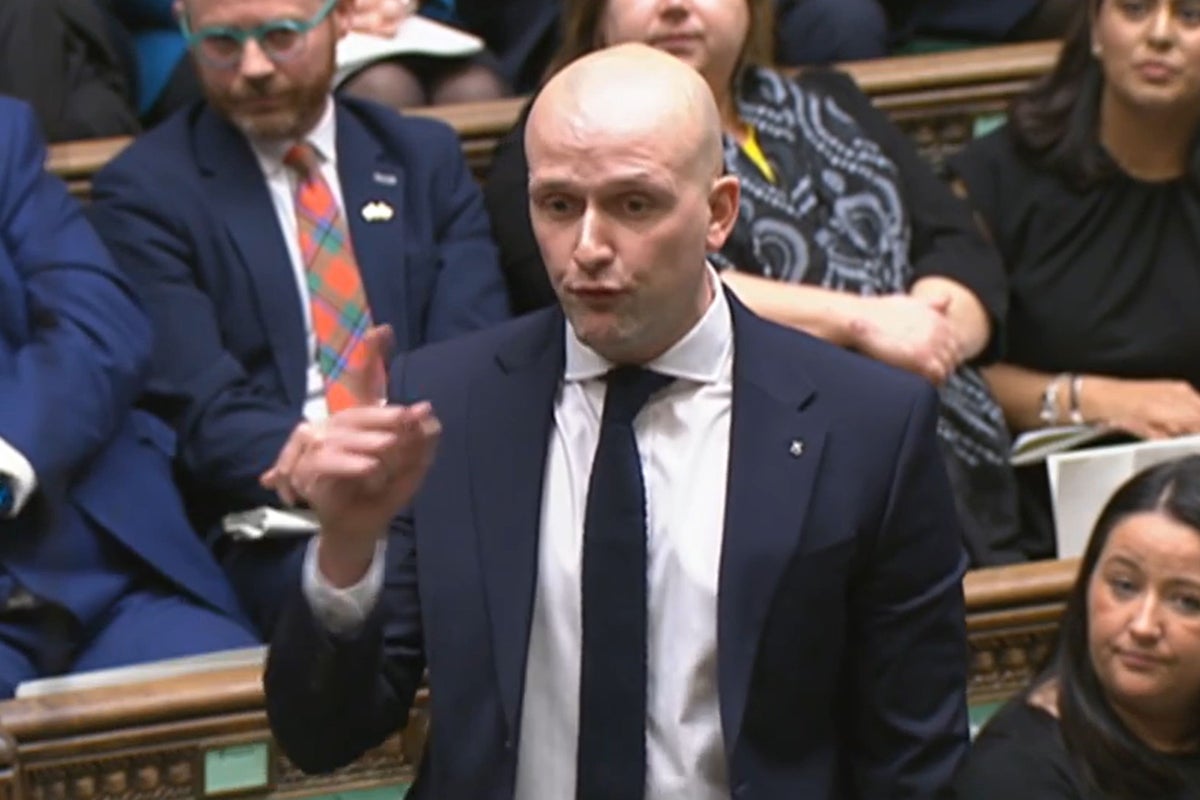
Stephen Flynn used his first appearance as SNP Westminster leader to take a swipe at Labour for what he described as agreeing with a number of controversial Conservative actions.
The MP for Aberdeen South was elected to the role on Tuesday after defeating Alison Thewliss to replace Ian Blackford.
Speaking in the new role for the first time at Prime Minister’s Questions, Mr Flynn thanked his predecessor before addressing Rishi Sunak, saying: “What does he consider to be the greatest achievement of the Conservative Party in government since 2019?
“Leaving the single market and customs union, ending freedom of movement, denying Scotland her democracy, or getting the Labour Party to agree with all of the above?”
The Prime Minister said: “May I also congratulate, or join the First Minister, in congratulating the honourable gentleman on his appointment as the Westminster leader of the SNP.”
In the last 15 minutes a poll has landed which shows the support for Scottish independence has now hit 56%. And support for the Scottish National Party sits north of 50%— Stephen Flynn, SNP Westminster leader
He added: “The things that we are most proud of in the last couple of years is making sure that we protected this country through the pandemic, with furlough and with the fastest vaccine rollout.”
Mr Flynn then moved onto the question of independence, referencing a new poll from Ipsos Scotland for STV.
Mr Flynn said: “In the last 15 minutes a poll has landed which shows the support for Scottish independence has now hit 56%. And support for the Scottish National Party sits north of 50%.
“So, in that context, can I ask the Prime Minister does he consider that increasing energy bills on households in energy-rich Scotland by a further £500 will cause those poll numbers to rise or to fall?”
Mr Sunak said: “What we’re delivering for households across the United Kingdom, including those in Scotland, is £55 billion of support with energy bills.
“It will save a typical homeowner about £900 with their bills this winter, with extra support for the most vulnerable, and that is an example of the United Kingdom and the union delivering for people in Scotland.”
The poll of 1,065 Scots suggests support for Scottish independence has increased. With undecided voters ruled out, 56% who were likely to vote said they would back independence in a referendum, while 44% said they would vote against.







